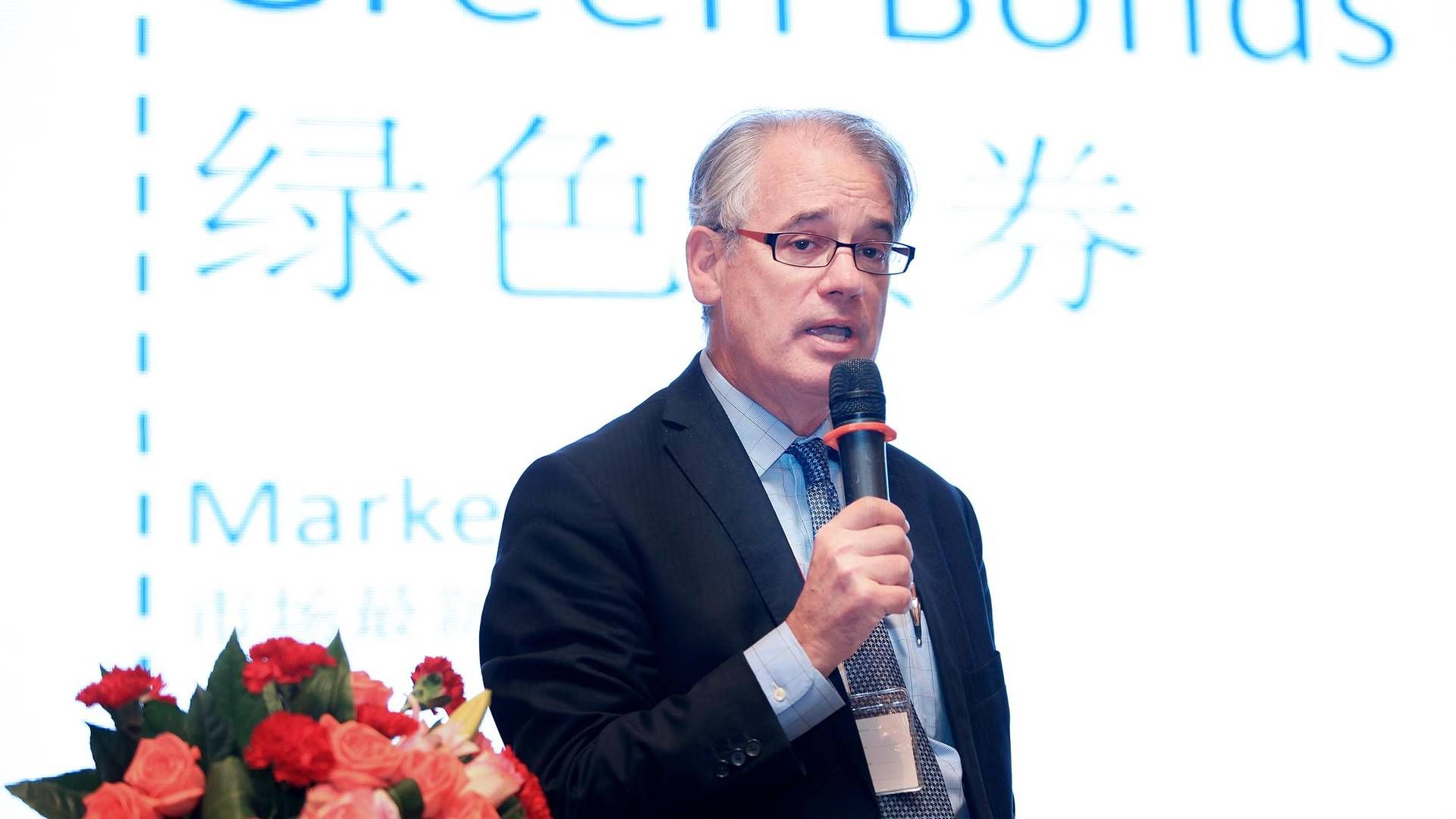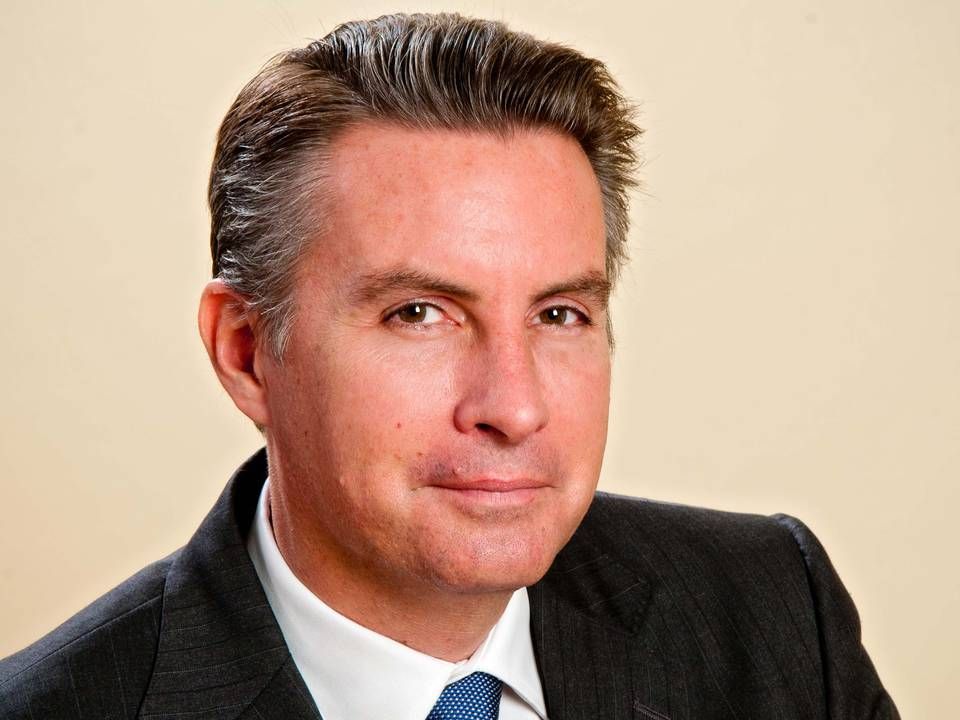Climate guru to Asset Managers: "Don't sacrifice yields – get active instead"

"It's not easy being green," Kermit the Frog sang many years ago, and it is true. Being green requires activism and hard work. But Kermit never sang that being green would cost you on yields and that's probably partly because Kermit didn't really deal with subjects like yields, and partly because it doesn't actually have to entail that cost. And who ever took advice from a frog, anyway?
When talking to Sean Kidney, who is working to mobilize debt capital markets for climate solutions through the NGO Climate Bonds Initiative, you understand, that it's not just grass roots organizations that can actually work to make our world turn greener. There are also things that asset managers can do in order to push the financial development in a greener direction at a faster pace.
"It's not about asset managers taking on the risk for society. They can't do that. They can't sacrifice yields either but they can become active instead of passive. They can push governments to generate deal flows you can invest in to meet your requirements," Kidney says.
He wants asset managers to stop sitting on their hands and instead use them to knock on doors and tell governments, that they need to provide green investment opportunities.
Asset managers need to push governments
If asset managers alongside others in the financial sector fail to push governments harder, there will be severe value loss as a consequence within a foreseeable future:
"Forget about the human and social costs, the instability, deaths, and all that. According to the Institute and Faculty of Actuaries, climate change is going to decimate portfolios in Europe by 2050. If that happens we will not be able to pay out pensions. So we have to get on the front foot here," says Sean Kidney, who is an accomplished international speaker.
He travels the world and advices banks, investors, governments and NGOs about how to structure programs to increase the leverage of public and private sector resources around climate finance.
Talking to FWAM, Kidney emphasizes that the kind of activism he is looking for is the more demanding kind:
"It's time for asset manager activism, not activism like in shareholder engagement, even though all that is important, I mean activism in public sector engagement, in policy engagement, in government engagement. Push them," Kidney says.
And there is actually a good reason to do the work and get governments to generate deal flows according to Sean Kidney:
"It's risk mitigation. The COP21 Agreement tells you we are going to change this world – it's just a question of if we change it in time. If you want to look for the investments with the most minimal chance of being affected by policy risk, asset value volatility, or collapse in fossil fuel prices, green is one way to identify that. And the green bond market and the fixed income sector is an opportunity. You increase investment there, then you are reducing the risk of value destruction, hedging your exposure," Kidney explains.
Win-win-win situation
Issuing green bonds is also advantageous for governments, which want infrastructure projects funded without slugging their citizens for taxes to finance projects from the public balance sheets.
"80 percent of what we have to do is infrastructure. We know from history that when we have sustained infrastructure binges we drive new economic growth. This is economics 101. No more austerity in Europe. Bring forward all of your infrastructure projects and make them green. This is not building empty houses in Las Vegas," says Kidney, who is also assisting the European Commission as well as the UN on green finance and the Chinese Government State Council to grow green bonds in China. He considers it a win-win-win situation to get more sovereign green bonds issued:
"It will give yields for asset managers because infrastructure projects, if designed appropriately, can be safe with a bit of longer term yield which is what pension funds and institutional investors need. No one wants any more negative interest rates German bonds. We've had enough of those," he concludes with a smile.
Let's get a move on
The deal flow is increasing but it isn't concentrated in Europe or eastern Europe. In Europe, only Poland and France have issued sovereign green bonds. It's in China and India the real growth in deal flows is beginning to emerge:
"We are making progress in some areas. We do have governments doing things. Like in France, Sweden, and Denmark. And then there are some being totally distracted by short term issues. Like the Greek issue: Greece being a pimple on the side of the European asset management industry, which could be solved in like half a day if we seriously wanted to. All I am saying is that we are stuffing around while Rome burns. We need to act. I think one of the solutions is to keep saying that. If you report that as part of your article it helps the equation but I want to say something specifically to asset managers: "Let's push for activism now – we don't have time to be passive."
So far, green bonds worth 49 billion USD have been issued in 2017. The estimate for the whole year is 150 billion USD.
MP Pension: Our climate investments are a hedge, not a political statement
Kommunekredit debuts green bond
ICMA in the middle of a runaway success with Green Bond Principles
















